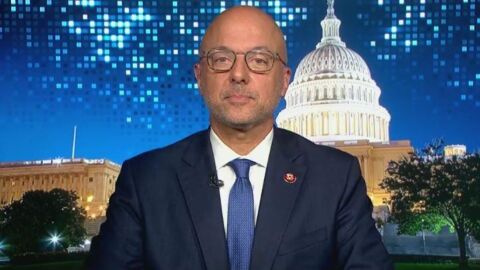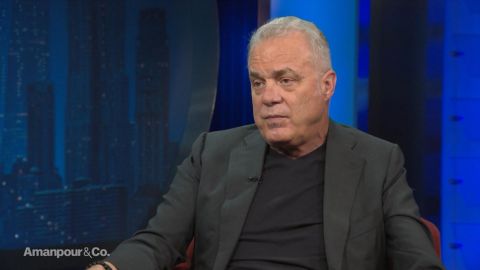Read Transcript EXPAND
DAVID BLIGHT, AUTHOR, “FREDERICK DOUGLAS: PROPHET OF FREEDOM”: Through the 1850s, Douglass gains the confidence of an extraordinary order who could — to go in any hall, any church or any park in a town or a city and just wow an audience. But by then, he had also written two very important autobiographies. Hundreds and hundreds of the short form political editorials. He had written one novella. And some of the greatest speeches in American rhetorical history, especially his 4th of July speech of 1852.
CHRISTIANE AMANPOUR: Yes.
BLIGHT: Such that — by the time he meets Abraham Lincoln, in the middle of the civil war, he was a bit odd by Lincoln, let’s make no mistake, but he stood up to Lincoln. He had a very serious conversation with Lincoln in their first meeting and especially in their second meeting. He went to Lincoln with protests against the discriminations being experienced by Black soldiers, two of him were Douglass’ own sons in 1863 and 1864.
AMANPOUR: You mentioned the fantastic Independence Day speech of 1852. So, allow me to quote a little from that dramatic speech. This is what he said, “The existence of slavery in this country brands your republicanism a sham, your humanity as a base pretense, and your Christianity as a lie. It destroys your moral power abroad; it corrupts your politicians at home. It saps the foundation of religion; it makes your name a hissing and a byword to a mocking earth.” I mean, that is just, you know, awe inspiring, isn’t it?
BLIGHT: Beautifully read.
AMANPOUR: Yes.
BLIGHT: It is. That speech is what I like to call the rhetorical masterpiece of American abolitionism. But at its heart, it is a classic Jeremiah, that’s the rhetorical form named after the Prophet Jeremiah, which is the prophet taking his people or his congregation, if you like, to the altar, calling them to the altar and chastising them for their declension, for their sins for how they have poisoned their society and warning them that if they do not change their ways, their world is about to be destroyed. But the 4th of July speech is much more than that. It’s a beautiful use of language. It’s almost like a symphony in three movements. He draws in his audience by telling them the founding fathers were geniuses. He calls the Declaration of Independence the ring bolt of American liberty. But then about one-third of the way in, he says, “Pardon me, why have you invited me here, a former slave on your 4th of July?” And then he uses that word, “you, your, you, your,” over and over and over. Then he takes his audience through the whole middle of the speech, through the litany of evils and horrors of everything from the slave ships to slave auctions to slavery itself.
About This Episode EXPAND
Christiane Amanpour speaks with Rep. Ted Deutsch and author David Blight. Hari Sreenivasan speaks with former Aetna CEO Mark Bertolini.
LEARN MORE


